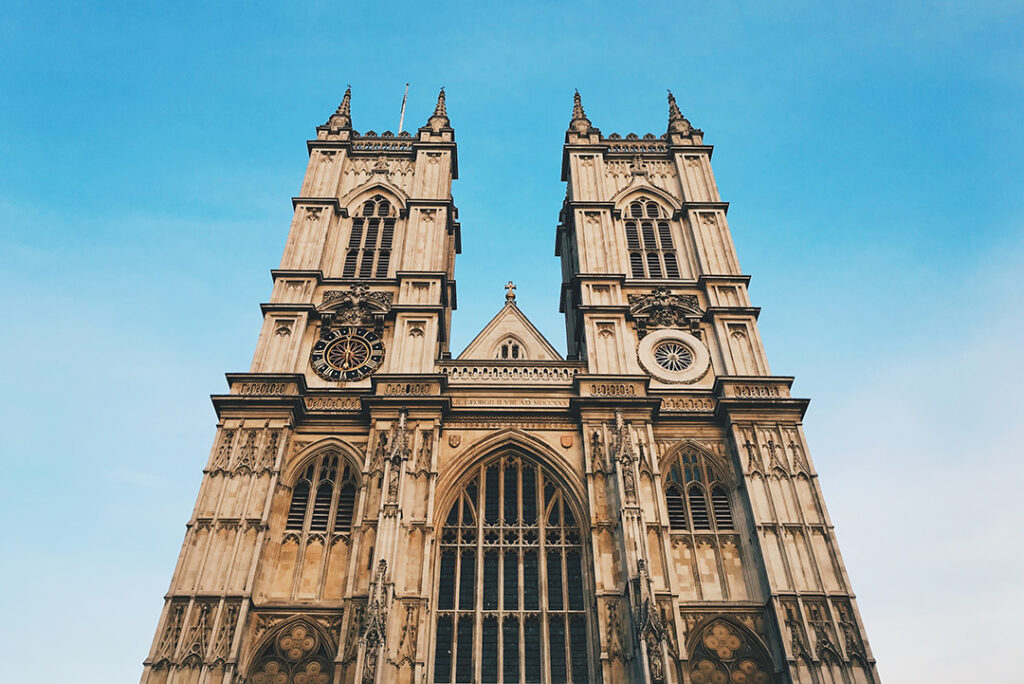A state of faith? New report on UK faiths and government unveiled
A state of faith? New report on UK faiths and government unveiled
The British government has finally released a report into how it should engage with UK faiths. But what do religious communities have to say about it?
Does the UK government ‘do God’?
A major independent review into how the British government engages with faith was published in late March 2023. The report, titled Does government ‘do God’?,[1] was mandated to investigate ‘how best the government should engage with faith groups in England’.[2] Over 21,000 people responded to public consultation as well as groups representing all major faiths,[3] making it ‘one of the largest public calls for evidence’ the UK has ever had.[4]
The document gives a range of recommendations about how the government can improve its engagement with faith communities in an increasingly diverse religious landscape. The Department for Levelling Up, Housing and Communities will then consider how to implement change across government.[5]
This article will focus on individual religions covered by the report. How did the report treat different faith communities and what has their response been?
Islam – stigmatisation must stop
One of the report’s headline messages surrounded government officials’ treatment of British Muslims. Muslims are being stigmatised at all levels of British society, including by being made to feel they have to frequently renounce terrorist acts. The report notes that the large majority of Muslims do not support Islamic extremism and should not be made to feel responsible for them.[6]
The report also notes that 12,000 Muslims are unable to go to university because there are no Sharia-compliant student loans (paying or receiving interest is a sin according to Islam). Introducing such loans will increase the ability of Muslim communities to integrate into British society.[7]
While Muslim sources have welcomed aspects of the report, some have said it gives disproportionate attention to Muslim extremists compared to extremists from other religions. Others have called its distinction between Islam and “Islamism” uncritical and dangerous.[8]
Judaism – marriage under the microscope
Jewish commentators have criticised the report’s treatment of a form of Orthodox Jewish marriage.[9] The report implies that “forced or coercive marriages” take place among certain Jewish communities, including Charedi Jews. More investigation is required to understand the extent of such practices.[10] The government’s forced marriage unit should pay more attention to Jewish rather than Muslim communities, the report warns.[11]
Critics of the report point out that it ‘misunderstands’ Jewish marriage practices.[12] According to Jewish law, marriages where either party feels under duress are not permitted.[13]
Other Jewish voices, including the Chief Rabbi Ephraim Mirvis, have welcomed how the report increases Whitehall’s religious literacy, and its findings about illegal Jewish faith schools.[14] [15]
Sikhism – accusations of stereotyping
The report dedicated over 10 pages to Sikh extremism and pro-Khalistan extremism, while devoting considerably less space to other forms of extremism and nationalism.[16] Some commentators have described such treatment as “stereotyping” that would negatively affect the public image of Sikhs.[17]
Some are considering legal challenges to the report’s use of the term ‘Sikh extremism’. Others question the impartiality of the report’s author, Colin Bloom, who has links to the ruling Conservative party and was appointed by the government.[18]
Christianity – a warm reception
Christian groups have been broadly welcoming of the report and its recognition of the important role religious communities play in UK society. They encourage the government to implement its recommendations.[19] [20] [21]
The Catholic Union complains that the review has ignored Catholics, with the word ‘Catholic’ appearing only twice in the 160-page report. The group calls the review a “missed opportunity” for a fundamental rethink of the government’s relations with faith groups.[22]
Meanwhile, Methodists have called for the government to pay attention to the work religions do to combat the systemic issues behind poverty and injustice.[23]
Secularists – pro-faith bias?
Some of the harshest criticism of the report has come from non-religious sources. Leaders of the National Secular Society have noted the report’s “clear pro-faith bias” and said that it further erodes separation between religion and state.[24]
The call for evidence was also phrased in such a way that suggested only religious people should answer, or have their answers prioritised, secularists complain. Furthermore, some of its recommendations discriminate against those who have no religious faith. Secularists warn that enhanced protections of religious beliefs should not come at the expense of people’s freedom from holding religious beliefs. Nonetheless, secularists and humanists do welcome some aspects of the report, including its crackdown on illegal faith schools.[25] [26]
A polarising yet important report for UK faiths and government
All groups were united around the significance of the Does government ‘do God’? report. The report concludes that ‘faith is a force for good’ and it is in the government’s interest to ensure faith communities flourish. Yet as we have seen, religious communities have criticisms about its contents and potential biases.
However, criticism, if it comes from all sides, can be a sign of a balance. The real influence of the report and its detractors will emerge over the coming weeks and months.
The British government is to “consider the findings and will respond in due course.”[27]
Want to learn more about similar topics? Go to the EARS Dashboard
Sources
[1] Does Government ‘Do God’?: An independent review into how government engages with faith
[2] GOV.UK: Faith Engagement Adviser appointed
[3] Government needs to better understand faith, independent review claims
[4] Does Government ‘Do God’?, p.158.
[5] What is Colin Bloom’s review of faith in modern Britain?
[6] UK politicians stigmatising Muslims over Islamist terrorism, report finds
[7] UK politicians stigmatising Muslims over Islamist terrorism, report finds
[8] Muslim groups respond to government’s Bloom review into faith
[9] Charedi ‘forced’ marriage misunderstood in government faith engagement report
[10] Does Government ‘Do God’?, p.154.
[11] UK’s forced marriage unit underfunded and too Muslim-focused, report to say
[12] Charedi ‘forced’ marriage misunderstood in government faith engagement report
[13] Charedi ‘forced’ marriage misunderstood in government faith engagement report
[14] A welcome call for more faith literacy in Whitehall
[15] Charedi ‘forced’ marriage misunderstood in government faith engagement report
[16] Does Government ‘Do God’?, pp.121–132.
[17] London Letters: UK Sikhs upset over “extremism” remark in Bloom’s faith review
[18] London Letters: UK Sikhs upset over “extremism” remark in Bloom’s faith review
[19] Bloom Review – Church of England comment
[20] Bloom Review: An independent review into how government engages with faith
[21] CES statement on The Bloom Review: does government ‘do God’?
[22] ‘Does Government Do God’ review a missed opportunity
[23] A response to the Bloom Review into faith engagement in public life
[24] NSS questions “biased” government faith review
[25] NSS questions “biased” government faith review
[26] Major Government report recommends legislation to shut illegal schools
[27] Government needs to better understand faith, independent review claims






